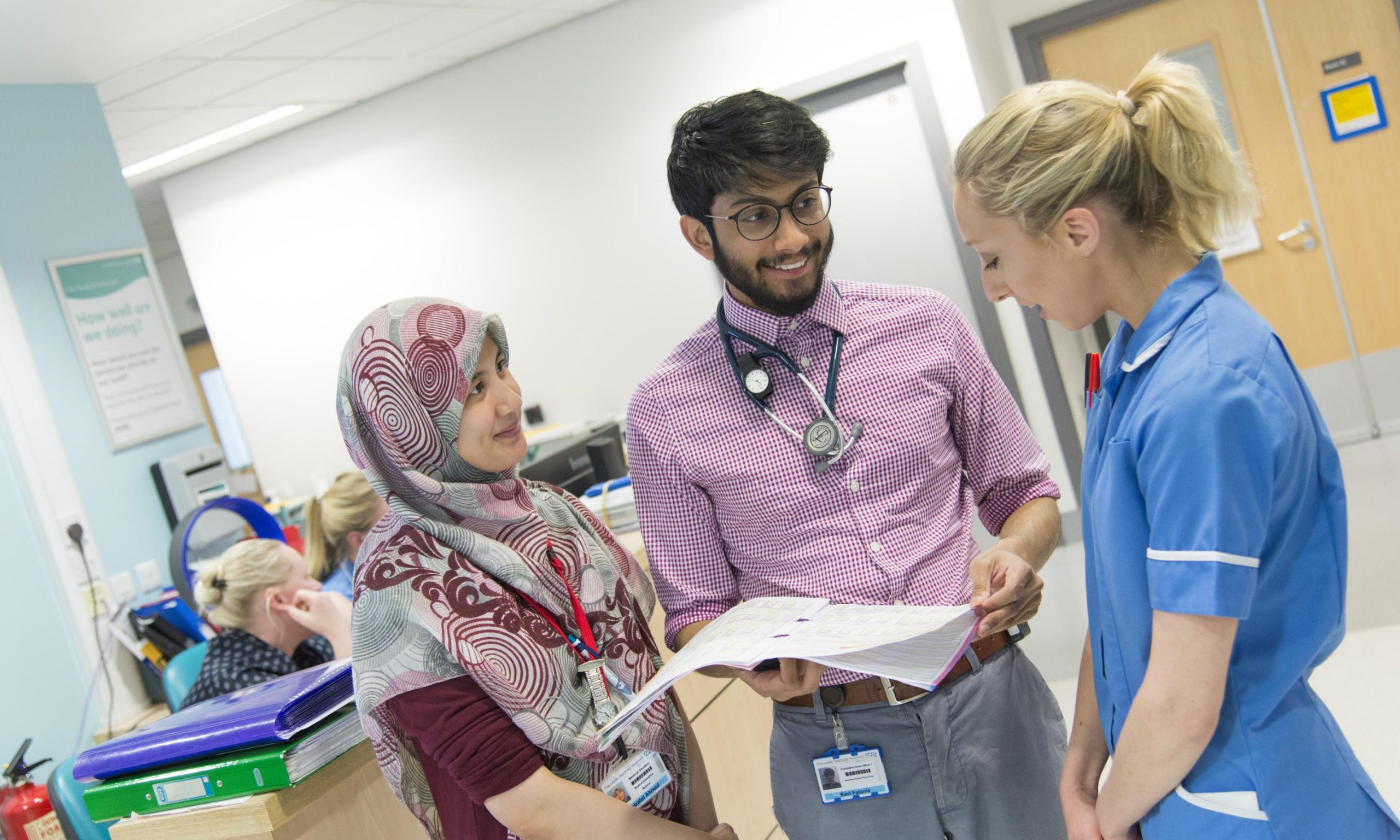As World Heart Day approaches, new figures highlight the importance of attending that very first session.
As World Heart Day (Monday 29 September) draws near, a leading cardiologist in the West Midlands has called on heart attack and heart failure patients not to miss their first cardiac rehabilitation appointment, describing it as perhaps the single most important factor in improving life after a hospital admission.
Despite the benefits, take-up across the region remains worryingly low. Latest NHS figures show that in 2023/24, just 619 out of 6,582 eligible patients with newly diagnosed heart failure in the West Midlands, only 9 per cent, started a cardiac rehabilitation programme when referred. Encouragingly, once patients attend their first session, commitment rises dramatically, with three quarters going on to complete the full course.
Dr Sheraz Nazir, Consultant Interventional Cardiologist at University Hospitals Coventry and Warwickshire NHS Trust, says these sessions can transform lives.
“If my patient misses their first appointment, I know their chances of sticking with the course will be much lower,” he said. “Completing cardiac rehab is as important as taking your prescribed medication. Both are crucial and work hand in hand. Rehab offers supervised exercise, education on lifestyle changes, and personalised support to help patients regain confidence and return to a full life.”
Dr Nazir, who also serves as Cardiovascular Disease Clinical Lead for the Coventry and Warwickshire Integrated Care System, recognises the concerns many patients have about restarting exercise after years of inactivity. But he insists the long-term benefits are undeniable, from reducing the risk of further heart problems to helping patients take back control of their daily lives.
Patients’ Stories
The value of rehabilitation is perhaps best shown through the voices of those who have lived it.
Paul’s journey
Paul, 63, a surveyor from Coventry, completed a 16 week heart failure rehabilitation course earlier this month at University Hospitals Coventry and Warwickshire.
His journey began suddenly on 5 June. “I’d been out with friends for a beer and felt uncomfortable when I got home. The pain came and went, and the next morning I called in sick,” he recalls. “At the walk-in centre, they sent me straight to hospital where I was told I’d had a heart attack. Stents were fitted that afternoon. The care I received was outstanding.”
Within a day, Paul was referred to cardiac rehabilitation. “At first, I really didn’t want to go. I wasn’t looking forward to that first session. But I knew I had to. After a few sessions, I started to enjoy it. By the end, I was doing weights, cycling and rowing.”
Paul says the difference has been noticed by colleagues and family alike. “The support from the nurses, dietitian, physios and pharmacists has been incredible. I’d tell anyone in the same situation, don’t hesitate. Stick with it, and you’ll reap the rewards.”
Margaret’s story
Margaret, 85, a retired teacher from Coventry, has lived with heart failure for several years and had a pacemaker fitted in 2013. She began her rehabilitation course just a few weeks ago at the Atrium Healthcare Centre after recovering from an angiogram.
“At first I was a bit apprehensive,” she admits. “But the staff were welcoming and professional, and we patients encourage each other. I’m already looking forward to benefits such as walking more often in my local park. I’d say to anyone in doubt, go for it. If it makes your quality of life better, why wouldn’t you?”
A Call to Action
Cardiac rehabilitation offers more than exercise. It provides education, emotional support and a roadmap for living well after a heart attack or with heart failure. Yet, with uptake in the West Midlands among the lowest in the country, experts hope that World Heart Day will be a reminder of just how crucial that first appointment can be.
Anyone with concerns about their health is urged to contact their GP in the first instance. If you suspect you are having a heart attack, call 999 immediately.

